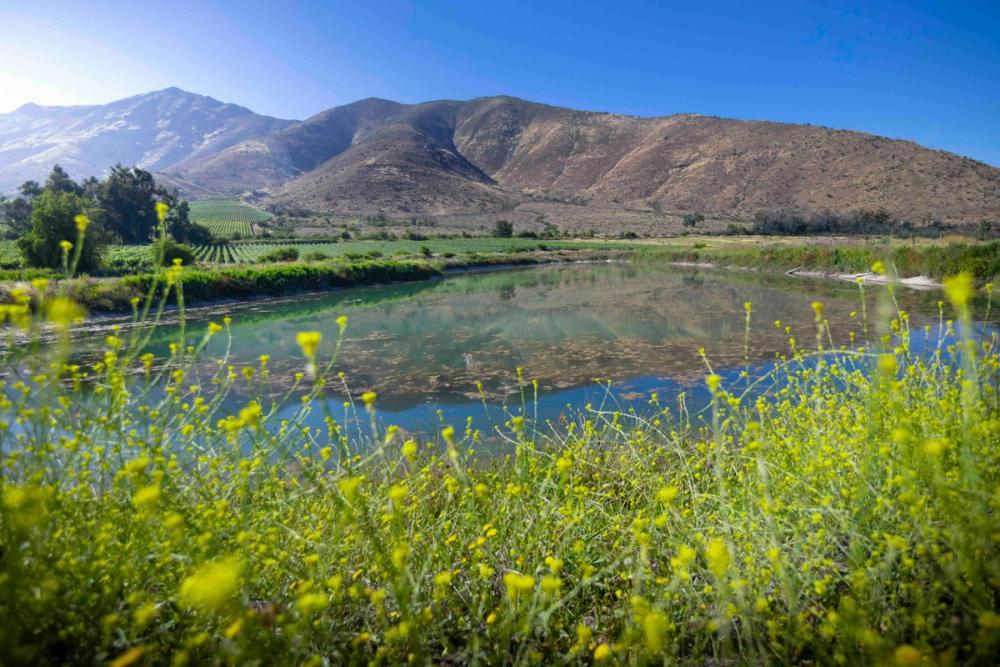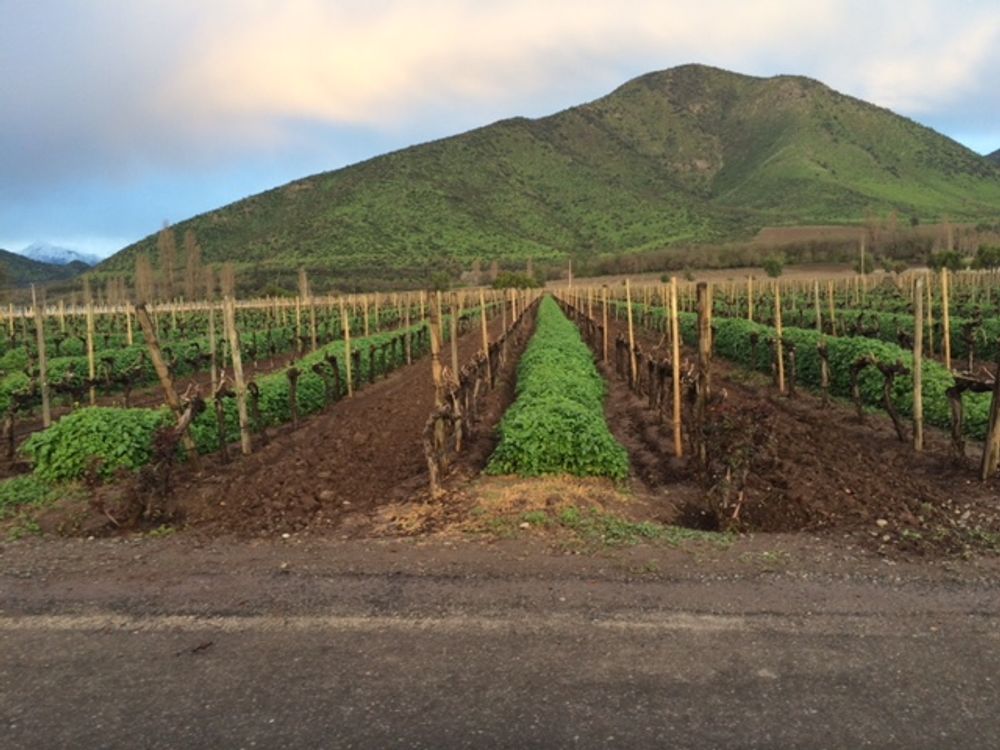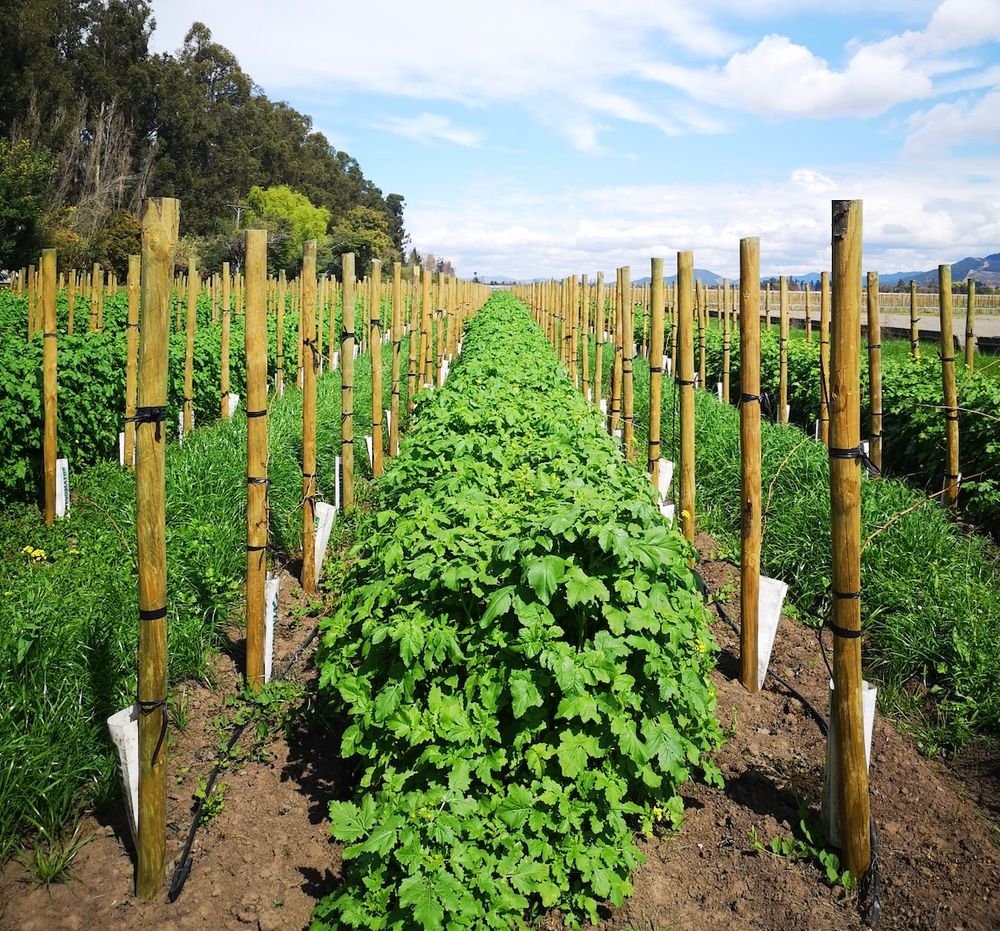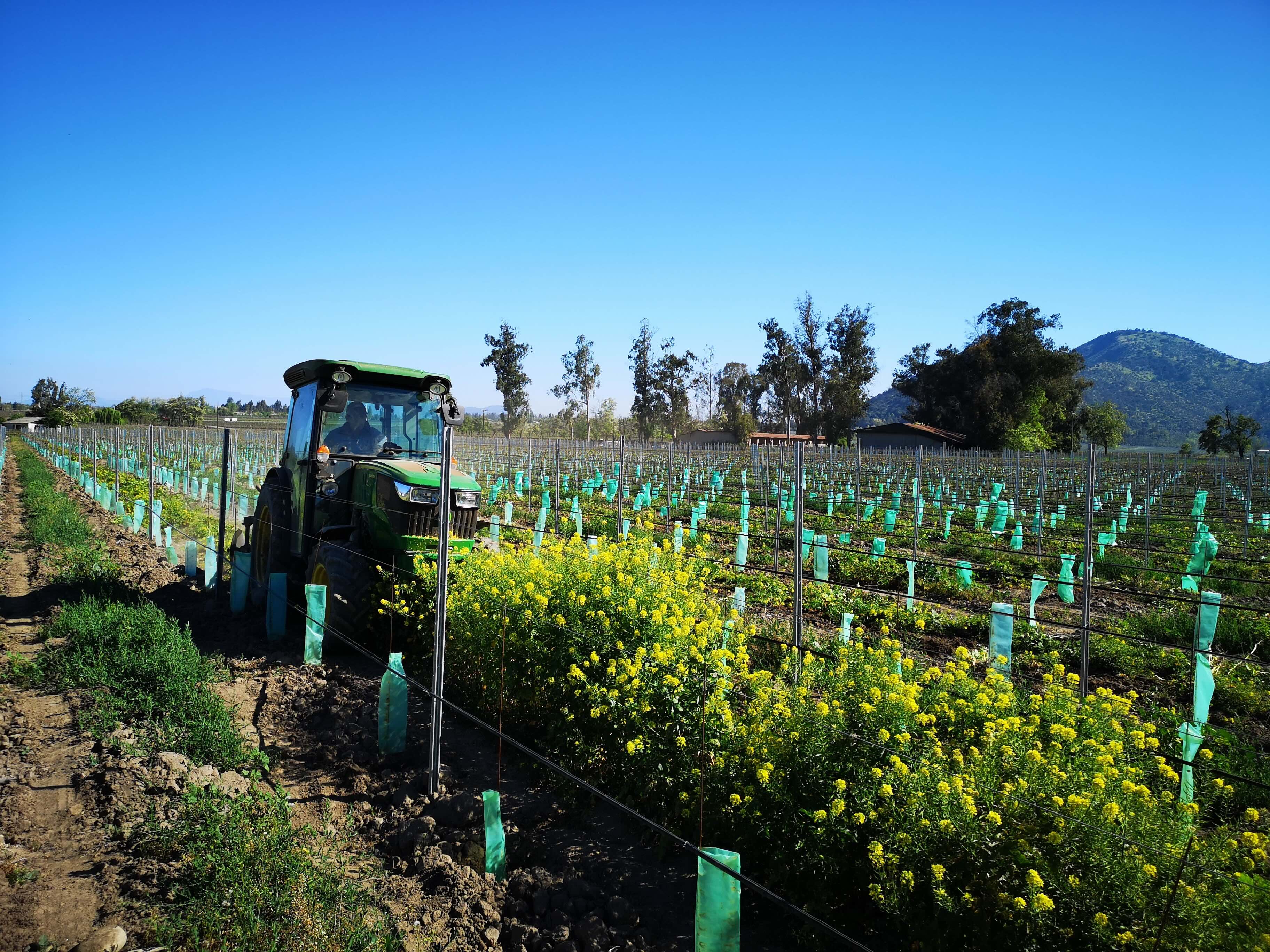Leading South American producer Santa Rita Estates, one of the largest wine groups in Chile accounting for a considerable chunk of the country’s total wine output, has long been a pioneer in the industry.
A key player in the development of the modern Chilean wine business, and particularly renowned for its award-winning Cabernet Sauvignon and Carmenere along with 30 other varietals, it has successfully combined winemaking tradition with cutting edge innovation, and was a trailblazer inbreathing new life into the sector when it introduced French grape varieties and sophisticated machinery, turning around the industry’s fortunes.

Santa Rita's commitment to sustainability was recognised by the Positive Luxury Awards
The same can also now be said for its sustainability credentials. Not only was Santa Rita the very first wine group to be certified under Wine of Chile’s sustainability code, one of the most comprehensive assessments in the world covering viticulture, community impact, estate facilities and tourism practices, but it is also well on its way towardsachieving its target of slashing iCO2 emissions by 30% by 2033 in line commitment to the Science Based Targets initiative (SBTi).
Excellence in sustainability
Its efforts have clearly paid off as the winery, which was founded in 1880 and includes the Chilean wineries Santa Rita and Carmen, as well as Doña Paula in Argentina, has just been awarded the much-coveted Premium Drinks Business of the Year at the prestigious Positive Luxury Awards which recognises excellence in sustainability, innovation and positive impact across the entire global luxury sector.
Organised by Positive Luxury, leading sustainability experts for worldwide high-end brands, the awards celebrate those organisations which are fundamentally changing the way that luxury is perceived via responsible and forward-thinking initiativesnot only within the premium drinks sector, but also beauty, fashion, jewellery, interiors and travel
The Premium Drinks Business of the Year Category also pitted Santa Rita against some stiff competition in the shape of Avallen Spirits, Donum Estate and Mezcal Reina, recognises those companies which show outstanding craftmanship, ethical business practices and forward-thinking innovation, helping to contribute towards a more sustainable luxury drinks industry.
“Santa Rita Estates exemplifies how tradition and sustainability can work tougher to create a lasting positive impact,” says Amy Nelson-Bennett, the chief executive of Positive Luxury. “As a leader in responsible winemaking, we celebrate their dedication to and passion for raising the bar for the future of the broader luxury drinks industry.”

Elena Carretero, Santa Rita’s corporate affairs and sustainability director, says its long term commitment to sustainability is now embedded in the company's business strategy
Santa Rita’s corporate affairs and sustainability director Elena Carretero says that receiving the award was a “great honour” for the entire team, adding: “This recognition reflects a long-standing journey, where sustainabilityhas been part of a clear, structured strategy that touches every part of our business, from the vineyard and winery to our people and communities. It motivates us to keep moving forward with conviction towards a more conscious, transparent and future ready industry.”
Taking part in the awards presented a great opportunity to highlight the sustained effort the company has been putting in for years, claims Carretero.
“At Viña Santa Rita, we believe that true luxury is not measured solely by the experience of a wine, but also by the positive impact we generate on our employees, their families, the surrounding communities and the natural environment we are part of,” she says.
“This recognition fills us with pride because it validates our cross-cutting commitment towards a form of winemaking that honours the past, acts in the present and protects the future.”
Long term ambition
It is vital for businesses operating within the luxury space, she claims, for them to implement long-lasting and meaningful change that benefits both people and nature, rather than adopting short-term quick fix solutions.
“Purposeful luxury cannot be built on immediacy,” she says, pointing to Santa Rita’s definition of sustainability as meeting the needs of the present without compromising future generations’ ability to meet their own.
“Guided by this principle, we have developed a strategy built on three inseparable pillars; environment, social and economic, with concrete actions that go far beyond words.”

Planting cover crops is a key part of Santa Rita's sustainability drive in the vineyards
These measures include preserving over 1,100 hectares of land for biodiversity conservation, introducing cover crops in all the vineyards to improve soil health and support ecological balance, as well as developing a territorial valorisation program that aims to foster the sense of belonging and pride for the values and attributes of the territory in order to create local development based on them, programs for children and young people in the Maipo Valley.
It it has put in place four projects: one that values the viticultural history of the area; another to promote local biodiversity; a third focused on its historical and architectural heritage for the local community; and a last one to help improve the musical culture for local children with concerts for surrounding schools.
Santa Rita’s sustainability efforts now mean that 44% of its energy comes from certified renewable sources (I-RECs). Other achievements include:
- 99% of its vineyards use high-efficiency drip irrigation.
- over 3,900 hectares have cover crops to help with biodiversity.
- 100% of its glass is recycled.
- 90% of its bottles are lightweight.
- 30% of its glass used is recycled.
Regarding energy conservation, the company has installed solar panels in its wineries and operational centres and has aligned its climate strategy with that of the goals of the Paris Agreement.
“Each of these actions reflects our belief that luxury is not an end in itself, but a responsibility,” she continues. “Sustainability is not a one-time gesture, it is a path of continuous improvement, legacy and long-term commitment.”
Of course, with the current economic climate putting more pressure than ever on many businesses, it would be all too easy to abandon sustainable practices when the alternative is cheaper and easier. But Carretero points out that resilience is embedded in Santa Rita’s DNA.
“With more than 140 years of trajectory, we know that challenging times require firm decisions not shortcuts,” she says. “Instead of stepping back, we have reaffirmed our commitment to sustainable management continuing to drive key projects such as water efficiency, regenerative agriculture, circular economy and the development of local suppliers. In times of uncertainty, our conviction only strengthens.
"We do not view sustainability as a reactive response, but as the structural foundation upon which we build a more robust, human and future ready business. Any other approach will be not sustainable in the future and will result in companies and businesses disappearing in the long term.”
Driving value

Santa Rita's sustainability strategy goes from the vineyard right through its production process through to the recyling of glass bottles
Carretero says embarking upon its sustainability mission has actually created value within the business, as well as for external stakeholders including employees, consumers and investors.
“Our sustainability approach has generated real, tangible value for all our stakeholders. Internally it has strengthened our organisational culture, fostering engagement, pride and a sense of purpose across teams. For our communities, it has translated into educational, cultural and economic development programmes that contribute to local growth. And for our consumers and investors, it signals consistency, long term vision and leadership.”
She stresses sustainability is no longer something which differentiatesyou from the competition, but is now an expectation. ”When it is done well and is consistent, it becomes a powerful source of trust and loyalty.”
Carretero says the very process of entering the awards proved a valuable experience, helping the Santa Rita team to identify both its strengths and areas of potential growth.
“Positive Luxury has been a key partner in challenging us, measuring our progress and helping us to improve,” she confirms. “This collaboration helps us not only communicate what we do – but do it better. In a context where credibility is essential, working with organisations like Positive Luxury helps drive higher standards, shared learning and a collective transformation agenda. Because the future of sustainable luxury is not built in isolation – it’s built in community.”
* You can find out more about Santa Rita and its sustainability strategy at its website here.
* Santa Rita is a commercial partner to The Buyer. You can find out more about the company here.






























